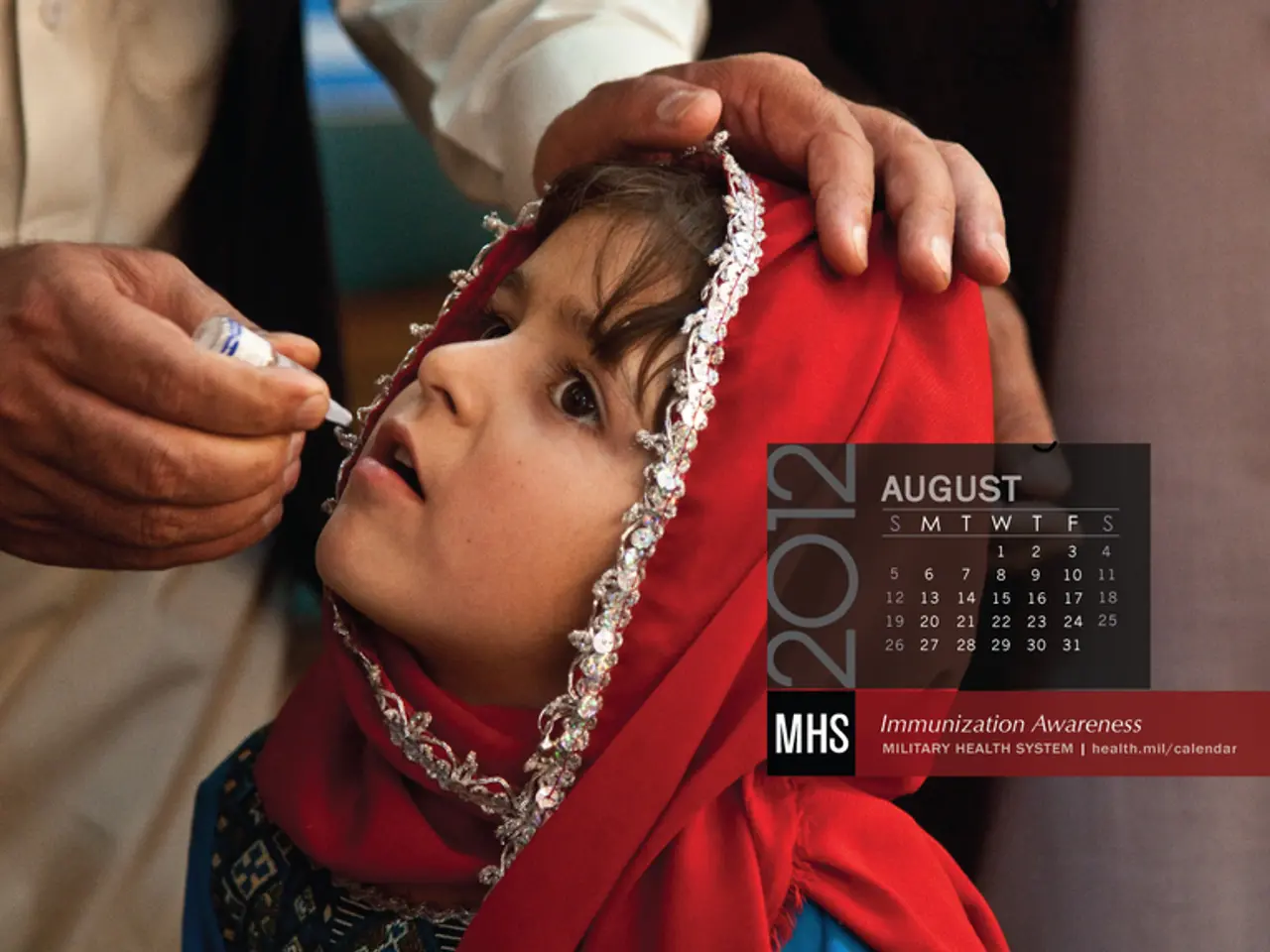Does the COVID-19 vaccine interfere with birth control methods?
The COVID-19 vaccine has been a topic of conversation for many, and with that comes questions about its potential effects on various aspects of health. One area of interest is its impact on menstrual cycles.
Firstly, it's important to address a common concern: there is no evidence to support claims that the COVID-19 vaccine can affect fertility. This includes for both males and females[1][6]. However, it's worth noting that males who contracted COVID-19 saw a temporary decrease in fertility[2]. As the vaccine reduces the risk of getting COVID-19, it could be considered a good choice for people hoping to get pregnant.
Reports have emerged suggesting that some individuals have experienced changes in their menstrual periods after receiving the vaccine. A retrospective study published in 2021 found that about half of the individuals who menstruate experienced a change in their periods after getting the vaccine[3]. It's important to note, though, that the study's authors suggest their research may overreport the actual rate of period changes due to selection bias[3].
Research using social media data and clinical studies has confirmed a statistically significant increase in menstrual disturbances after mRNA COVID-19 vaccination[1][3][4]. These changes, however, are generally temporary and tend to resolve quickly. Menstrual changes appear to be short-term and self-limiting, with no clear evidence linking COVID-19 vaccines to permanent menstrual disorders[1][3].
For those who use natural birth control methods, such as the fertility awareness method, changes in menstrual cycles could potentially make it difficult to know when they are ovulating. However, it's crucial to remember that these changes are usually temporary and resolve quickly.
Regarding birth control, no studies have directly tested the effect of the COVID-19 vaccine on birth control effectiveness as of March 2022. It is safe to use all forms of birth control and get a COVID-19 vaccine[7].
It's also worth addressing the concern about blood clots. Certain vaccines, including the Johnson & Johnson's (J&J) Janssen vaccine, have a rare risk of a blood clot called thrombosis with thrombocytopenia syndrome (TTS). As of March 2022, the J&J vaccine has been administered 18.5 billion doses in the United States, with 59 reported cases of blood clots[8]. It's important to note that the actual increase in blood clot risk from the J&J vaccine is incredibly small[8].
In conclusion, while COVID-19 vaccines, particularly mRNA types, have been associated with short-term menstrual changes, these effects are usually mild and transient with no demonstrated long-term impact on menstrual health. For those with concerns about birth control, menstrual changes, or any other related issues, it's always a good idea to consult a healthcare professional.
- Regarding fertility, there is no evidence to support claims that the COVID-19 vaccine can affect it for both males and females, but males who contracted COVID-19 saw a temporary decrease in fertility.
- Reports have emerged suggesting that some individuals who menstruate have experienced changes in their periods after receiving the COVID-19 vaccine, although a study's authors suggest their research may overreport the actual rate of period changes.
- Research has confirmed a statistically significant increase in menstrual disturbances after mRNA COVID-19 vaccination, but these changes are generally temporary and tend to resolve quickly, with no clear evidence linking COVID-19 vaccines to permanent menstrual disorders.
- For those who use natural birth control methods, changes in menstrual cycles could potentially make it difficult to know when they are ovulating, but these changes are usually temporary and resolve quickly.
- Regarding health-and-wellness, especially women's health, it's important to consult a healthcare professional for any concerns about birth control, menstrual changes, or any other related issues, as the COVID-19 vaccine has been associated with short-term menstrual changes, particularly mRNA types, but these effects are usually mild and transient with no demonstrated long-term impact on menstrual health.




